
Glimecheck 4mg Tablet
Manufacturer
Prevego Healthcare & Research Private Limited
Salt Composition
Glimepiride (4mg)
Key Information
Short Description
Glimecheck 4mg Tablet is a sulfonylurea medication used to treat type 2 diabetes mellitus in adults, helping to control blood sugar levels and prevent serious complications.
Dosage Form
Tablet
Introduction
Glimecheck 4mg Tablet is an antidiabetic medication that belongs to a group of medicines called sulfonylureas. It is used to treat type 2 diabetes mellitus in adults. It helps control blood sugar levels in people with diabetes thereby preventing serious complications of diabetes such as kidney damage and blindness.
Directions for Use
Take this medicine in the dose and duration as advised by your doctor. Swallow it as a whole. Do not chew, crush, or break it. Glimecheck 4mg Tablet is to be taken with food.
How it works
Glimecheck 4mg Tablet is an antidiabetic medication. It works by increasing the amount of insulin released by the pancreas in order to lower blood glucose.
Quick Tips
Be careful while driving or operating machinery until you know how Glimecheck 4mg Tablet affects you. Always carry some sugary food or fruit juice with you in case you experience hypoglycemic symptoms such as cold sweats, cool pale skin, tremor, and anxiety. Your doctor may check your liver function regularly. Inform your doctor if you develop symptoms such as abdominal pain, loss of appetite, or yellowing of the eyes or skin (jaundice).
Related Medicines
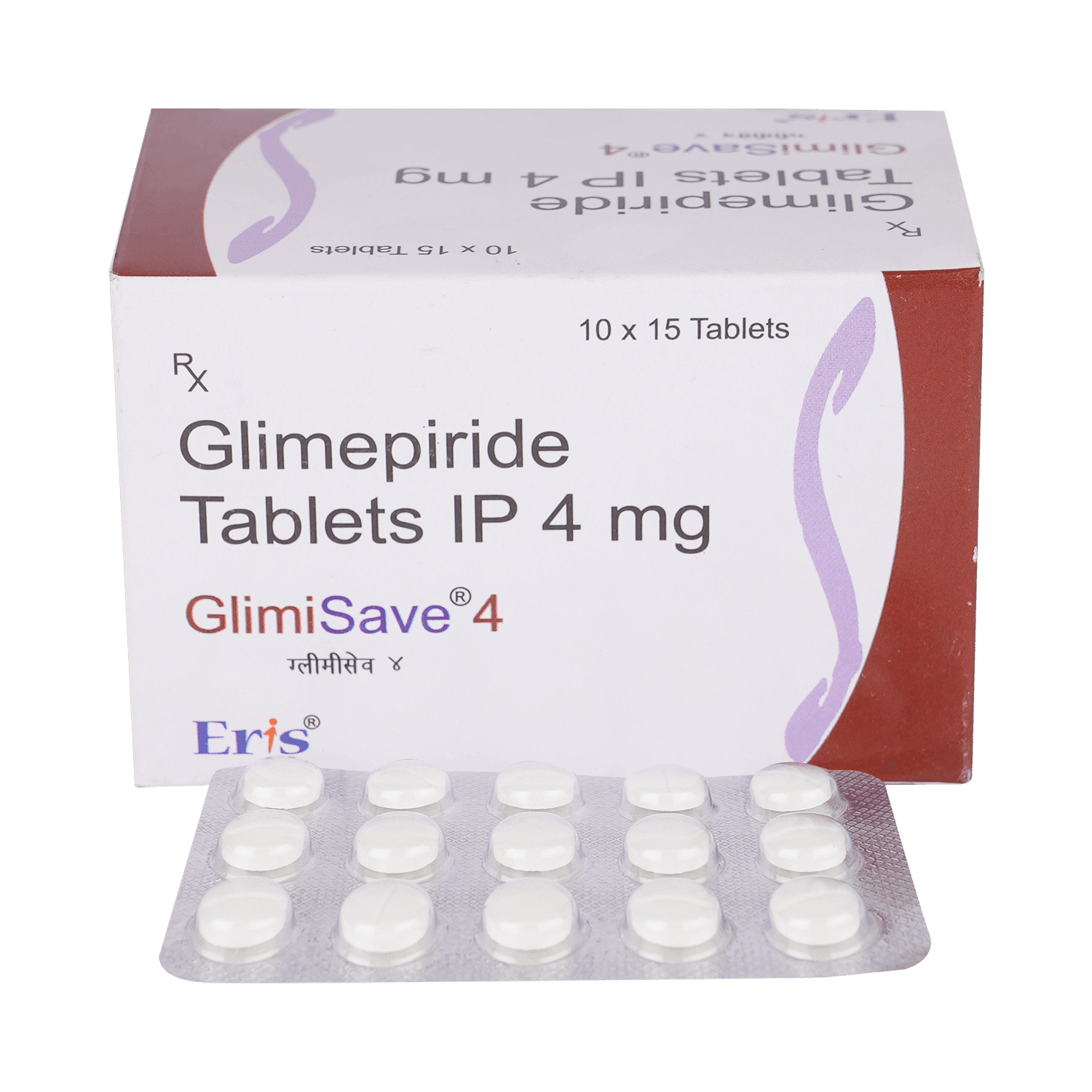
Glimisave 4 Tablet
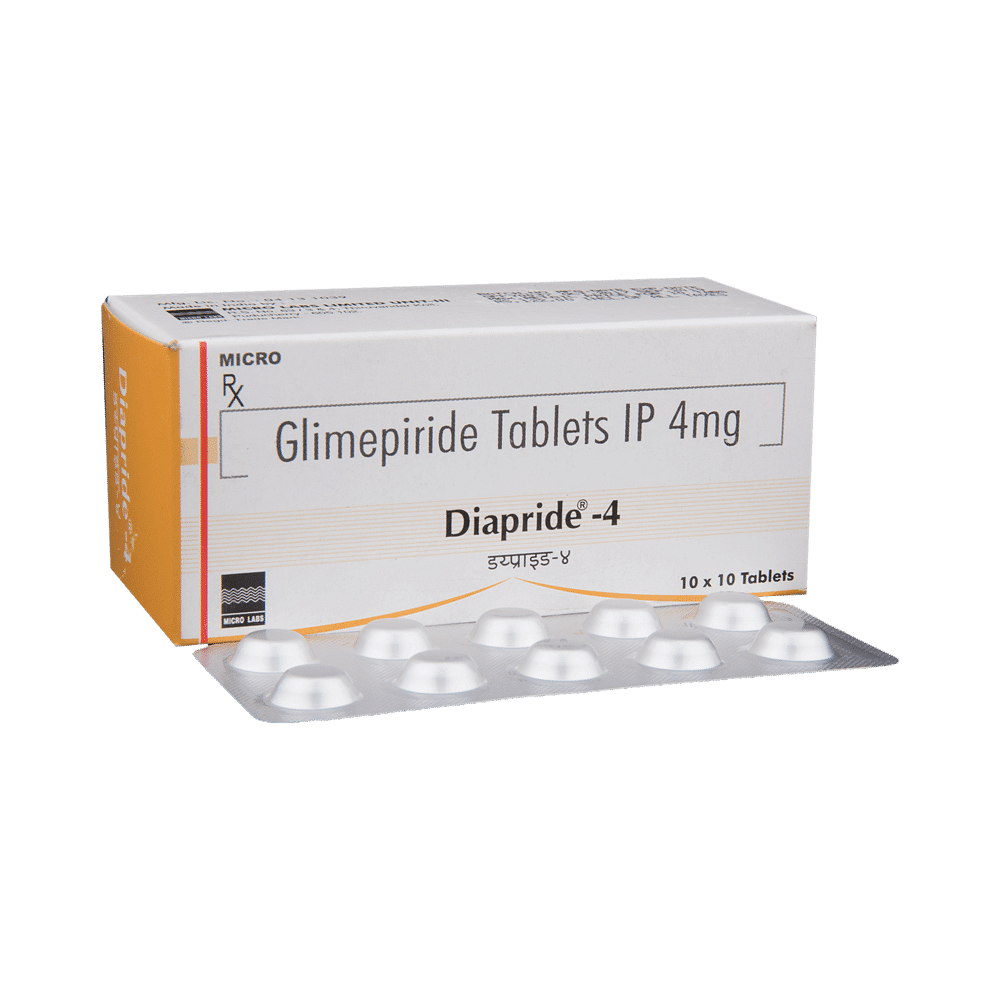
Diapride-4 Tablet
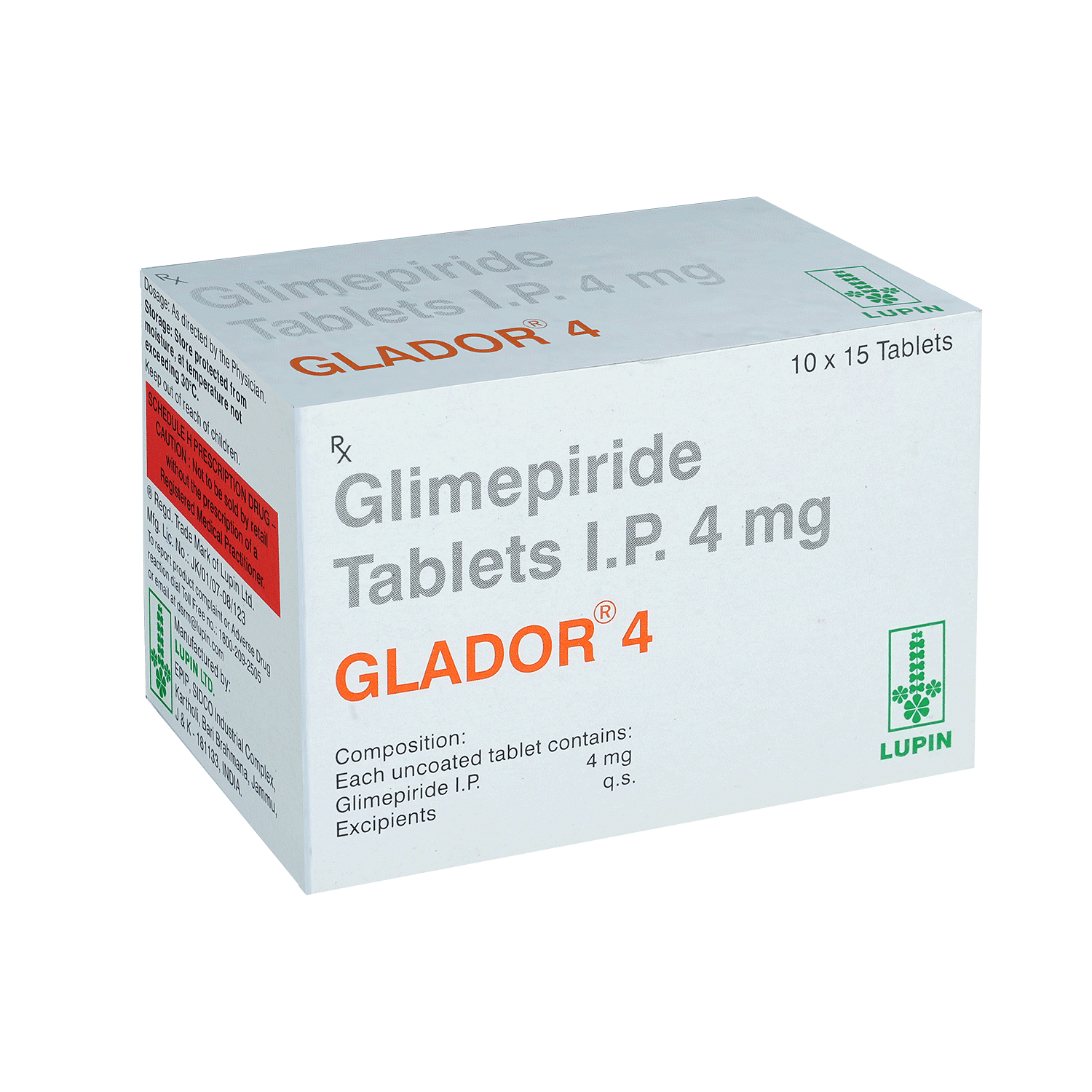
Glador 4 Tablet
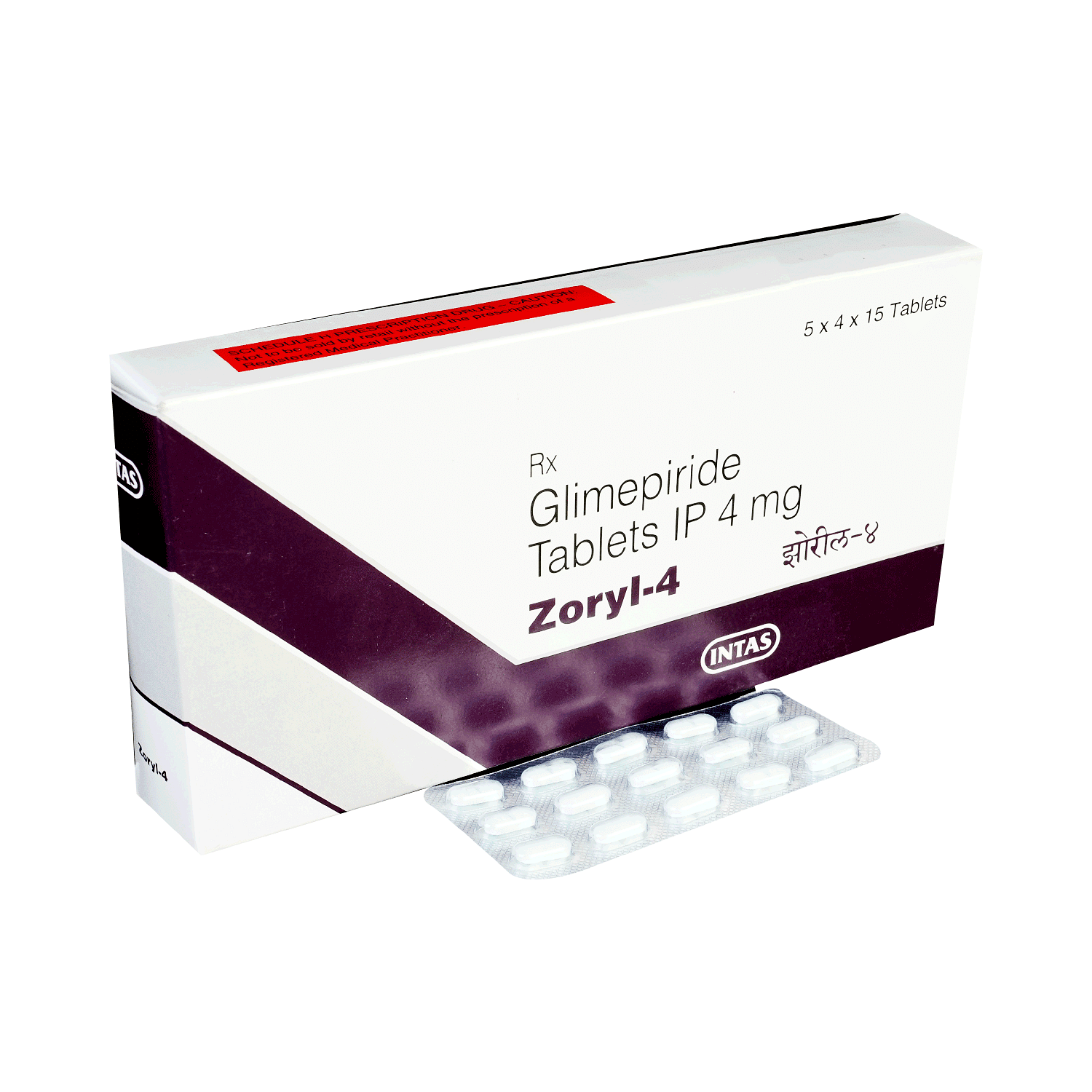
Zoryl-4 Tablet
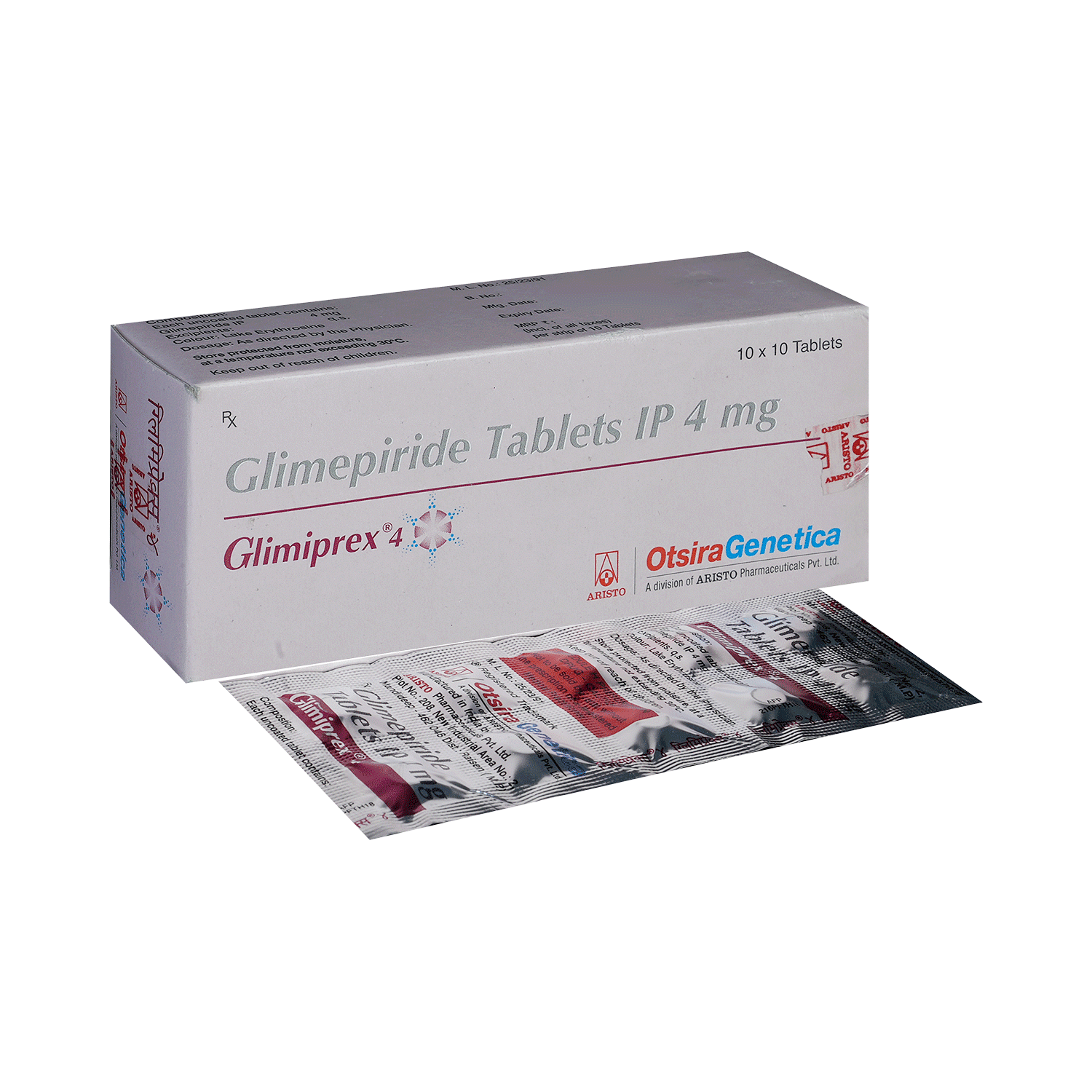
Glimiprex 4 Tablet
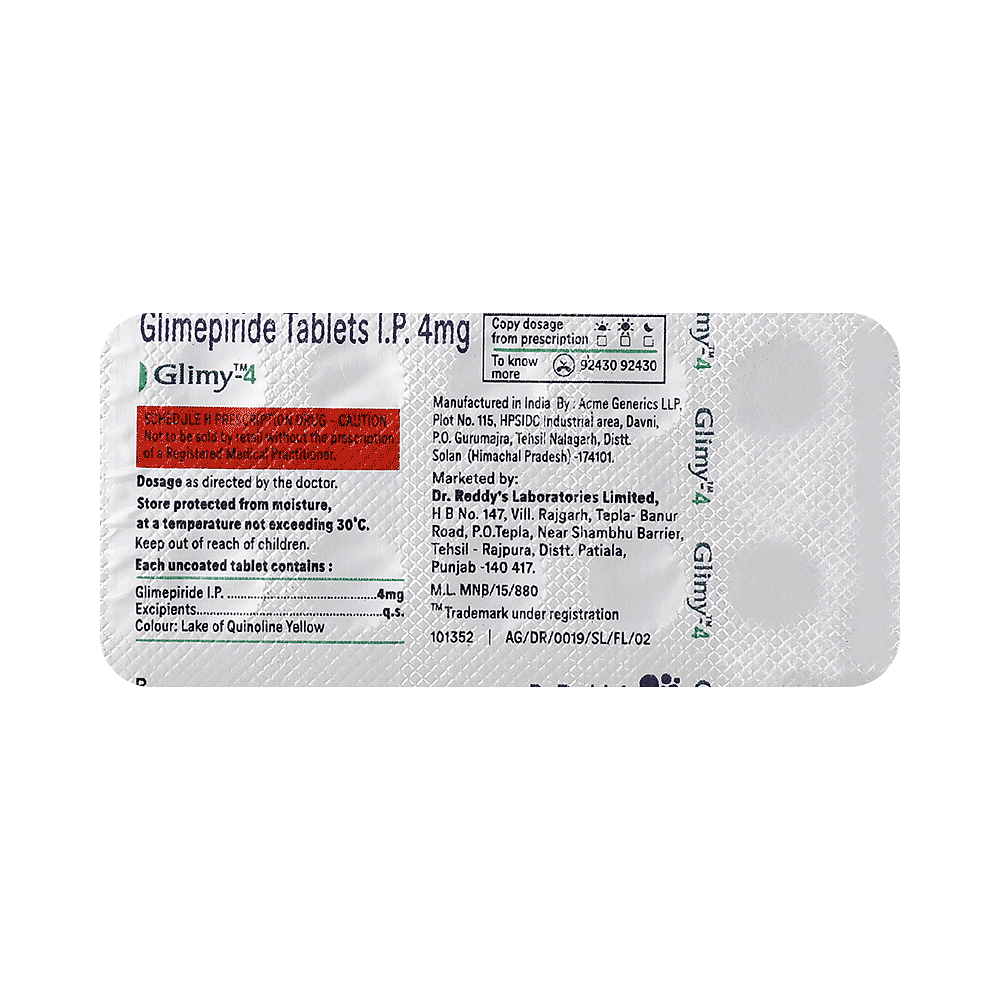
Glimy 4 Tablet
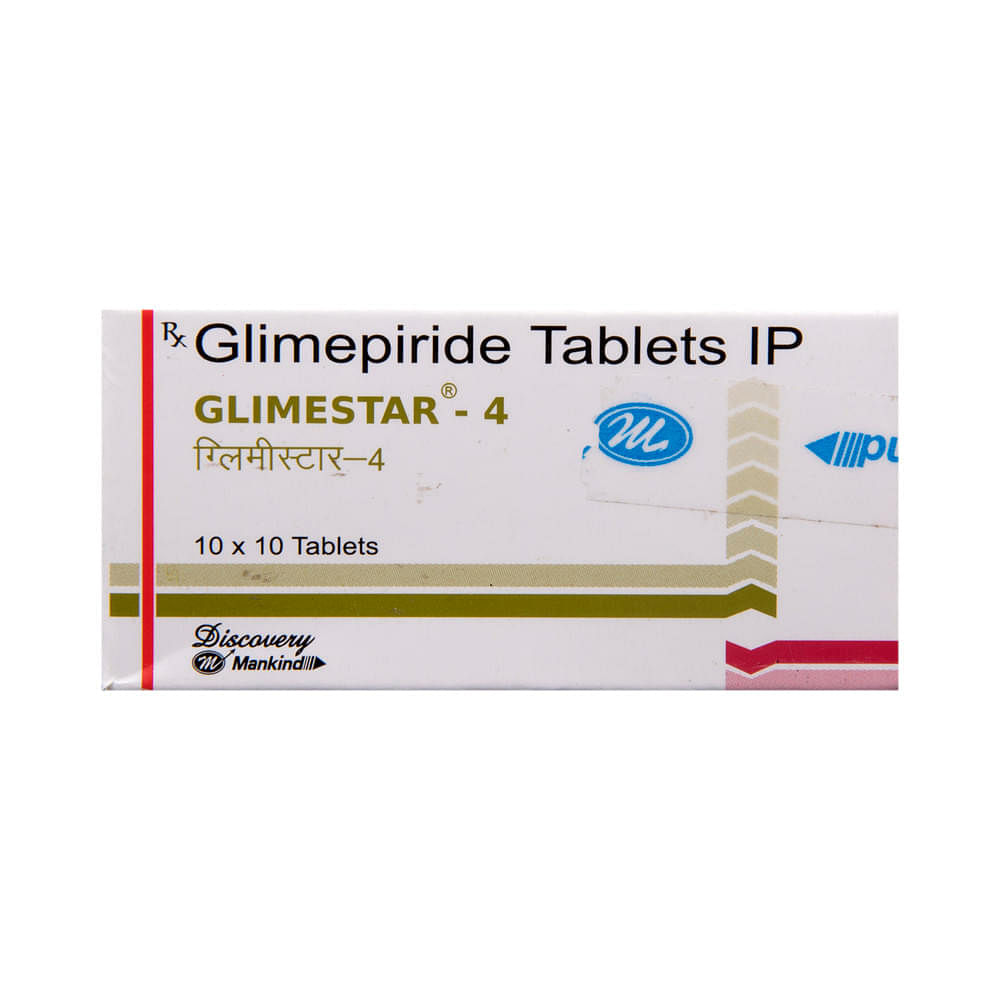
Glimestar 4 Tablet

Ambroglim 4mg Tablet

Gmine 4mg Tablet

Melipride 4mg Tablet
Frequently asked questions
What is the recommended dosage of Glimecheck 4mg Tablet?
The recommended starting dose of Glimecheck 4mg Tablet is 1 mg or 2 mg once daily, administered with breakfast. The usual maintenance dose is 1–4 mg once daily.
Does Glimecheck 4mg Tablet cause sleepiness?
Glimecheck 4mg Tablet itself does not cause sleepiness, but it may cause hypoglycemia (low blood sugar) when used with other anti-diabetes medicine. This can lead to dizziness, shaking, anxiety, irritability, a fast heartbeat, and confusion.
Is Glimecheck 4mg Tablet safe for kidneys?
Glimecheck 4mg Tablet does not affect kidneys in patients with normal kidney function. However, its use should be avoided in patients with severe kidney disease since Glimecheck 4mg Tablet is principally eliminated by the kidneys.
Does Glimecheck 4mg Tablet cause memory loss?
No, it is not known that Glimecheck 4mg Tablet causes memory loss. However, the use of Glimecheck 4mg Tablet may cause low blood sugar which can affect concentration and alertness.
Who should not take Glimecheck 4mg Tablet?
Glimecheck 4mg Tablet should be avoided by patients who are allergic to it, have severe kidney or liver disease, have G6PD-deficiency (an inherited condition affecting red blood cells) or are due to have surgery. Additionally, patients who are trying to get pregnant, are pregnant or breastfeeding, or have insulin-dependent diabetes (type 1 diabetes mellitus) should avoid taking Glimecheck 4mg Tablet.
What foods should be avoided while taking Glimecheck 4mg Tablet?
It is advisable to avoid foods that are high in saturated and trans fats. Instead, consume fats from fish and nuts. Control your carbohydrate intake as this directly affects your blood sugar.
Can people with diabetes have proteins?
Yes, people with diabetes must include proteins along with other essential nutrients in their daily diet. Proteins are one of the major energy providers among all essential nutrients.
Are artificial sweeteners good for people with diabetes?
No, artificial sweeteners are not good for people with diabetes. They are composed of chemicals that can cause mild to severe side effects.
Can diabetes cause kidney failure?
Yes, uncontrolled diabetes can cause kidney failure. In the long run, diabetes can affect the kidneys leading to a condition called diabetic nephropathy.
Can diabetes be cured?
Diabetes is a condition that causes changes in your blood glucose levels, which if left uncontrolled, can lead to serious health complications affecting the heart, brain, kidneys, and eyes. However, with simple lifestyle changes, diet, and medications, one can manage their condition and lead a healthy life.


